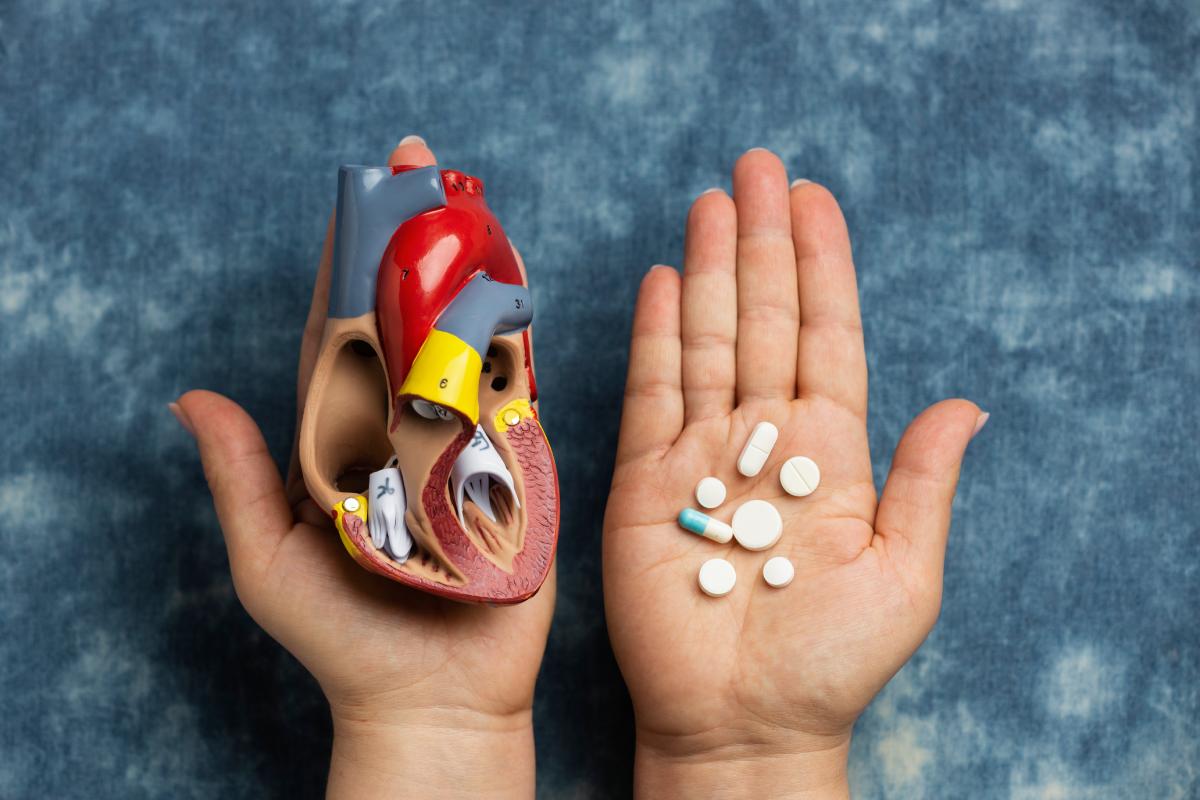Book on Whatsapp
9892101616
The Importance of Diabetes Test: Causes, Symptoms, and Treatment
Diabetes
Wed Jan 15 2025
Diabetes is a long-term illness that will impair the body's capacity to control blood sugar, or glucose, which fallout in high blood glucose levels. If it is untreated then it may have a major health issue. Diabetes testing is essential for early identification, and treatment, and will avert complications of health. In this article are examined that diabetes testing is the root cause, symptoms and treatment
Type Diabetes:
Type 1 Diabetes:- It is an autoimmune disease in which the body's immune system targets and kills the pancreatic cells that produce insulin. As a result, the slight to no insulin is produced. Although the precise aetiology is uncertain, environmental factors like viral infections and genetics may be involved. Although it can be the reason to strike at any age of human, type 1 diabetes is usually found first in the children or young adults.
Type 2 Diabetes:- This situation is brought on by the body's confrontation to insulin or by the pancreas' inability to adequately and produce enough insulin to control the blood sugar levels. It is frequently associated with the lifestyle and the variables such as heredity, non-hygienic food, obesity, and physical inactivity.
Diabetes during pregnancy:
Diabetes that develops during pregnancy will primarily go away after the baby is born. In the future, pregnant women with gestational diabetes are more likely to develop Type 2 diabetes. Changes in hormones will mostly impact how the body uses insulin.
Symptoms of Diabetes
Diabetes symptoms may not be immediately apparent since they develop gradually. The three most significant indicators of increased blood sugar are frequent urination, obesity, and health problems.
Importance of Diabetes Testing
To avoid major problems like heart disease, kidney failure, nerve damage, and visual loss, diabetes must be detected early. Diabetes can be detected by testing before serious harm is done. The following are the most often used tests to diagnose diabetes:
- Quick Blood Sugar Check: Blood glucose levels are measured by this test following an overnight fast. Diabetes is suggested by a reading of 126 mg/dL or above.
- Test for hemoglobin A1c: The test gives the result of the average blood sugar report. Diabetes is indicated by an A1c reading of 6.5% or greater.
- Random Blood Sugar Test: Blood sugar can be measured using this test at any time of day. Diabetes is suggested by an outcome of 180 mg/dL or greater, particularly if symptoms are present.
Medications:
- Insulin: To help control blood sugar, people with Type 1 diabetes and some with Type 2 diabetes also need insulin therapy.
- Oral Drugs: Drugs like as metformin assist regulate blood sugar levels by either enhancing the body's reaction to insulin or by lowering the liver's production of glucose.
- Other Injectable Drugs: By lowering blood sugar levels or promoting insulin production, other injectable treatments for Type 2 diabetes may aid in blood sugar regulation.
Conclusion
From the above mentioned in the article it has been concluded that an essential part of controlling and avoiding the complications of diabetes is diabetes testing. Regular testing will help to detect diabetes early, and also allow people to control blood sugar levels and lower their chance of developing major health problems. A combination of medicine, lifestyle modifications, and regular monitoring can that will help people with diabetes live healthy lives. If the person has diabetes symptoms or is at risk, discuss the right tests and treatment choices with the healthcare professional
Related Tests
Related Packages
Related Blogs

Diabetes
Foods for Blood Sugar Control in Type 2 Diabetes
Managing Type 2 diabetes requires making smart choices, especially when it comes to food. What you eat plays a major role in controlling your blood sugar levels and maintaining overall health. With the right diet, you can feel more energetic, avoid complications, and enjoy a better quality of life. Eating well is a powerful step toward a healthier, happier you!
1. Leafy Green Vegetables
Leafy greens like spinach, kale, and fenugreek leaves are packed with vitamins, minerals, and fiber. They are low in calories and carbohydrates, which makes them ideal for people with diabetes. These vegetables also have antioxidants that help protect against inflammation and damage caused by high blood sugar levels.
2. Whole Grains
Unlike refined grains, whole grains such as oats, quinoa, brown rice, and whole wheat are rich in fiber. Fiber slows down the digestion process, preventing sudden spikes in blood sugar. Choosing whole grains over white rice or white bread can lead to more stable energy levels throughout the day.
3. Nuts and Seeds
Almonds, walnuts, chia seeds, and flaxseeds are excellent choices for people managing Type 2 diabetes. They are loaded with healthy fats, fiber, and protein, all of which helps to maintain blood sugar balance. A small handful of nuts as a snack can keep you full longer and prevent unhealthy cravings.
4. Fatty Fish
Fish like salmon, sardines, and mackerel are rich in omega-3 fatty acids. These healthy fats help reduce inflammation, lower triglyceride levels, and support heart health, which is very important for people with diabetes. Grilled, baked, or steamed fish twice a week can be a great addition to your diabetes-friendly diet.
5. Beans and Lentils
Beans, chickpeas, and lentils are affordable, nutritious, and highly beneficial for blood sugar control. They are rich in fiber and protein, which slow down the release of sugar into the bloodstream. Including a variety of legumes in your diet can improve both blood sugar and heart health.
6. Berries
Berries such as strawberries, blueberries, and raspberries are sweet but low in sugar compared to many other fruits. They also contain antioxidants and fiber. A small serving of berries can satisfy your sweet cravings without causing a blood sugar spike.
7. Greek Yogurt
Greek yogurt is a rich source of protein and probiotics, which can aid digestion and support metabolic health. It has fewer carbohydrates than regular yogurt and can help you feel full longer. Choose plain, unsweetened versions to avoid hidden sugars.
Controlling blood sugar doesn’t mean giving up tasty foods. With thoughtful planning and the right choices, you can enjoy a variety of delicious, nutritious meals that help manage Type 2 diabetes effectively. Regular health checkups through manipaltrutest.com can help you track your progress and make informed decisions about your diet and health. For those looking for regular health monitoring, visiting trusted centers like Manipal TRUtest can ensure you stay updated on your health.

Diabetes
Understanding the Link Between Diabetes and Heart Health
Diabetes is associated with heart health. Anyone has diabetes, it is essential that understand how diabetes impacts the heart and that can be done to make sure well-being. Individuals more often than not do not understand that the risk of heart disease is finely tuned due to diabetes, but the good news is that some minor lifestyle modifications can assist in its preventive care.
Diabetes affects the heart
Diabetes is a circumstance that influences the body capability to manage blood sugar (glucose) levels, most considerably to severe health complications in the long run. It is one of the most important dangers of diabetes is its consequence on the heart and blood vessels. The persistently high blood sugar can harm the blood vessels and the nerves that standardize the heart, and also improve the risk of heart-related complications. The people with the diabetes are almost twice as probable to acquire heart disease as those who do not have the situation. This risk becomes even higher for persons who have additional health concerns such as the high cholesterol, obesity, or the smoking. Common cardiovascular complications that include heart attacks, strokes, high blood pressure, and congested arteries, all of which can severely blow overall health. This manage the blood sugar levels through a healthy lifestyle, and proper medication, and regular check-ups it is essential in reducing the risk of heart disease and maintaining overall well-being.
Warning Signs of Heart Disease
Heart diseases are slow to develop, with the major problem of patients being unable to notice symptoms until the condition has already worsened considerably. However, certain warning signs are definitely not to be ignored, for they, in a way, can signal a severe product of the heart. They are: chest pain or discomfort, shortness of breath, swelling in the legs, feet, or ankles, and frequent dizziness. These symptoms can manifest in many heart disorders and should be immediately evaluated by a doctor. Such symptoms could lead to severe complications like a heart attack or stroke. People with such symptoms should get emergency medical help to avoid further damage and get speedy treatment.
Ways to Protect Your Heart
The good news is that administration diabetes properly can also help decrease the risk of heart disease. To take the small but consistent steps can make a big difference in keeping heart healthy. To start by monitoring blood sugar frequently and taking medications as prearranged by doctor. To eat the balance diet filled with fresh fruits, vegetables, whole grains, and lean meats while avoiding excess sugar, salt, and fried foods can support both heart and overall health. To be active is just as important whether its is a 30-minute walk, some yoga, and simple exercises, movement helps keep the heart strong. Stress that can also take a toll, raising blood sugar and blood pressure, so try relaxation techniques like meditation, engaging and deep breathing in hobbies. The smoke, that consider quitting as soon as possible since smoking indemnity blood vessels and increases the risk of heart disease. Lastly, the regular check-ups with the doctor can help to detect any possible problems early, ensuring the heart stays in good shape.
Conclusion
From the above discussion, it can be concluded that diabetes and heart disease are closely related, but with the right care, one can keep the heart safe and live a healthy life. Small changes in lifestyle, such as healthy eating, exercise, stress management, and regular check-ups, can go a long way. Additionally, undergoing a diabetic profile test can help monitor blood sugar levels and overall health. These small steps taken daily reduce risks and keep the heart healthy and strong.

Diabetes
Importance of Blood Sugar Test for Health Monitoring
Blood sugar tests are critical instruments in healthcare, providing crucial information about a person's health, particularly for illnesses such as diabetes. Regular blood sugar monitoring can help discover irregularities early, treat existing diseases, and avoid major health complications. This simple but significant test provides critical information on the extent to which the body processes glucose, the main source of power for our cells. Understanding the significance of blood glucose testing is critical to achieving overall wellness.
Early Detection of Diabetes
One of the most important reasons for a test for blood sugar is to detect diabetes or prediabetes early on. Diabetes is a disorder in which the body fails to efficiently regulate blood sugar levels, either due to inadequate production of insulin (Type 1) or insulin resistance (Type 2). Healthcare providers can detect signals of high glucose levels even before symptoms appear. Prediabetes is a condition in which blood sugar levels are above normal but are not yet sufficiently elevated to be classed as diabetes. Early detection of prediabetes enables modifications to their lives, such as dietary changes and more physical activity, that can help avoid the development of diabetes of the type 2 variety.
Monitoring Existing Conditions
Individuals who have already been diagnosed with diabetes require regular blood sugar tests to monitor and manage the illness. Consistent testing allows you to see how well your treatment strategy is working and whether you need to change your meds or lifestyle. Maintaining blood sugar levels within a target range helps lower the risk of consequences associated with poorly managed diabetes, such as heart disease, harm to the kidneys, nerve damage, and eye issues. Blood sugar monitoring also allows people to make real-time choices regarding their food, activity, and medicine. For example, if blood sugar levels are abnormally high or low, a person may implement corrective action such as eating carbs, altering dosages of medicines, or participating in physical activity.
Preventing Complications
Many problems can arise from uncontrolled blood sugar levels. For example, hyperglycemia, or persistently elevated blood sugar, can harm blood vessels and result in kidney failure, stroke, and cardiovascular disease. Conversely, hypoglycemia, or extremely low blood sugar, is a potentially fatal condition that can result in disorientation, lightheadedness, and even unconsciousness. By enabling people to detect changes in their blood sugar levels early and take the appropriate steps to avoid more difficulties, routine blood sugar testing helps avoid severe hyperglycemia and hypoglycemia. This is especially crucial for people who have an extended family history of diabetes, obesity, high blood pressure, or other conditions that put them at high risk of problems
Promoting Better Lifestyle Choices
Additionally, blood sugar checks motivate people to lead healthier lives. The test findings give quick insight into how blood sugar levels are impacted by medication adherence, exercise habits, and food choices. People may be encouraged by this feedback loop to follow their treatment regimens, eat better, and exercise frequently. For example, a person may be motivated to change their eating habits if they observe a rise in blood sugar following the consumption of sugary foods. Regular testing can also help people make better decisions about their physical activity by educating them about how various forms of exercise impact their blood sugar.
Conclusion
A crucial component of health monitoring is blood sugar testing, particularly for those who have diabetes or are at risk of developing it. It guarantees efficient treatment of diabetes, aids in its early detection, and averts long-term consequences. Frequent blood sugar checks yield useful information that can direct prescription modifications, lifestyle changes, and general health enhancements. People can improve their overall standard of life and keep more power over their health by integrating blood sugar levels monitoring into their everyday routine
